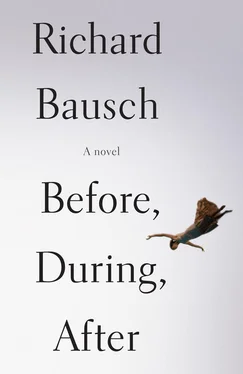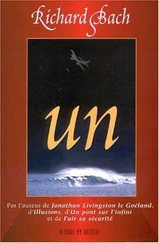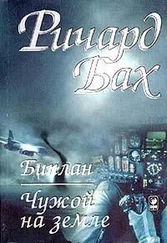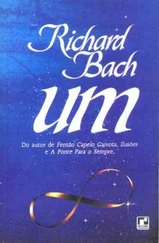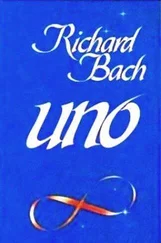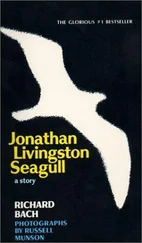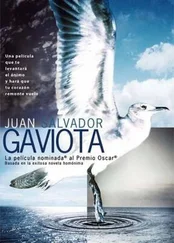“Nothing,” he said. “Forget it.” Suddenly he felt heavy and sodden with what he’d had to drink, and with his own suspicions. He put his wineglass down and reached into the cabinet for a glass to pour himself some water.
“Honey?” Natasha said.
“Really. Forget it.” He managed the smile, then turned and went to the back door and out onto the little porch, where the two caterers were sitting with arms folded across their knees. He asked for a cigarette.
Natasha saw him light it, saw the features of his face illuminated by the match, and in that moment she wanted everyone to be gone. She watched him talking to the two Mexicans, trying to make himself understood, gesturing at the night. She saw the look of hopelessness on his face when they did not understand him.
He took a deep draw of the cigarette and walked out of the light toward the end of the yard. When he looked back he saw the two caterers watching him, two shadowy figures under the porch light. Beyond them was the lit kitchen, and Natasha staring out, Constance at her side with a look of concern and vigilance on her face. Something was between the two women and, whatever it was, it had to do with the stranded days in Jamaica. He smoked the cigarette and walked to the side yard, the only light now the coal of the cigarette as he drew on it. You could hear the chatter going on inside the house, but he did not look at the curtained windows. He was alone, and beginning to think that this was as it should be. The wedding tomorrow seemed absurd, and he was being made a fool of by these women. They knew something that he did not know, that it was his right to know. He could simply call everything off, refuse to tie himself to this young woman and her complicated life. He took a few shaky steps toward the front lawn, the streetlight there in its cloud of insects. Why? Why!
Remember who you are , he muttered aloud to himself. God forgive me .
Why would she go through with things if her feelings had changed? What had he done to deserve such treatment if it was true? But then, he told himself, trying to be philosophical, what did anyone deserve, after all, when love rode through the soul? He was in love. He knew the force of that. He was in love — completely in love with this young woman, Natasha, who no longer felt that way about him and was trying to hide it, with the help of the two friends who knew how she really felt.
Suddenly he broke out crying and moved deeper into the dark, to the hedge along that side, wiping his face with his forearm and seeking to gain control of himself.
God, please help me to be the man I want to be .
For some reason he saw himself lapsing into that pretentious talk about the Donatello statue, and he repeated his own line about it, like a sort of ridicule: That statue shuts up everyone who walks into that room . Seeing himself, so earnest and stupid, talking like that into what the women knew, he drew deeply on the cigarette and threw it down, and sobbed quietly. At last he straightened, took a breath, and murmured aloud: “Stop it. Stop it. For Christ’s sake.” Even with what he’d had to drink, he found that he could look coldly at his own panic. He was afraid of losing her, afraid the process had already begun. But everyone had suffered through the calamity, and he understood that he must stop imagining things. “You’re pushing fifty,” he said aloud, off into the dark. “Quit acting like a kid.”
Help me, I’m drowning .
He took a deep, slow breath, trying to get calm. He was quiet, standing there in the dark.
In the house, Natasha stared at the place where he had stood lighting the cigarette and saying whatever he had said to the caterers. She thought of going out there to find him.
Constance touched her elbow and murmured, “Does he know?”
“About what?”
“Come on.”
“Oh, Jesus Christ .”
“Have you said something to him?”
“There isn’t anything to say, Constance. For God’s sake.”
“Well, he challenged me. He knows something.”
“There’s nothing for him to know. Oh, God. Can you please — why did you come here? Was it to ruin everything? Do you know how guilty you looked just now?”
“I’m sorry,” Constance said. “I was trying to protect you. I was stupid before and I was — I’ve been trying to make it up to you.”
“We have to leave, sweetie,” said Aunt Clara, reaching to embrace Natasha. Jack stood behind her. “Where’d Michael get off to?”
Natasha looked out the back-door screen again and saw only the two caterers. “He was out there.”
“Well, tell him we’ll see him tomorrow.”
“I will.” Tears blurred her vision. Aunt Clara evidently thought they were tears of happiness.
8
The morning was long but filled with preparations. Faulk set things in order and washed all the dirty dishes from the night before and then made breakfast for them, and for Leander and Trixie, who drove over just before noon. It felt good to be busy. All his darkness of the night before stood in the back of his mind like a fever dream. He would not let it ruin things. He told himself he did not know anything for certain except that the horrors of their mutual experience had left everyone unsettled and changed. But change did not have to mean unhappiness.
Standing at the sink washing dishes, he concentrated on the life they had planned. They would go to the south of France next spring. They would find the means to rediscover each other out of the disaster that had befallen the whole country. He would win her back to him, and she would be as she had been before.
Natasha wanted nothing to eat. She took a bath, washed and dried her hair, and put on makeup. People were arriving downstairs. They were going to make a caravan of cars to Millington. Faulk seemed calm, almost resigned, and he had been very drunk and sorrowful when he came to bed. Fretful and distressed with himself for getting so bad. He remembered putting his arms around her and asking her to forgive him when she came to lie down at his side, and then, waking in the middle of the night, he wasn’t sure of it. She was not there next to him. After some time of drifting in and out of sleep, he got up, went downstairs and stood in bright light that made it impossible to see, and then realized that he had dreamed this; that he was still in the bed. And she was there. She had either come back or had never left. He turned from her and went back to sleep, and slept so deeply and snored so loudly that for a couple of hours, and for the second time, she had to try sleeping on the couch downstairs. She was sober in spite of all the wine. One cup of coffee, sitting and talking with Iris before going up to bed, and she was wakeful all night.
But everyone said she was beautiful when she walked downstairs in the new dress. Faulk had put a dark suit on, and an electric-blue tie. He looked wonderful. He took her hands in his own and kissed her.
They all went out into the bright sun, got into four cars, and headed to Millington, with Faulk and Natasha leading the way.
“I feel like we’re at the head of a parade,” Natasha said.
“So we are.”
The Lucy Wedding Chapel was a small A-frame cottage with white tulips in a flower box along its front and rosebushes bordering the lawn. The little pockets of shade from the bushes looked painted on the lustrous fresh-cut grass. The priest who was commissioned to perform the ceremony was the one who had taken Faulk’s place at Grace Episcopal. This was suggested by Andrew Clenon. The new priest was a slight, round-faced, nervous man named Lee Wuhan, who was, he said, of Asian descent, and who, in his celebratory remarks, made a metaphor of the World Trade Center, talking about how it represented power and worldly pursuits and how love flourishes best when coming from the individual spirit: the recent catastrophe was a message from on high about what is most essential in life. As he spoke, Natasha lowered her gaze, feeling the inappropriateness of bringing this sort of topical homilic remarking into her marriage ceremony. It angered her. When she stole a glance at Faulk, she saw nothing of what she felt. Faulk stared at the man almost blandly. Natasha gave his hand a little squeeze and kept her eyes down, listening to the notes of providential import.
Читать дальше
